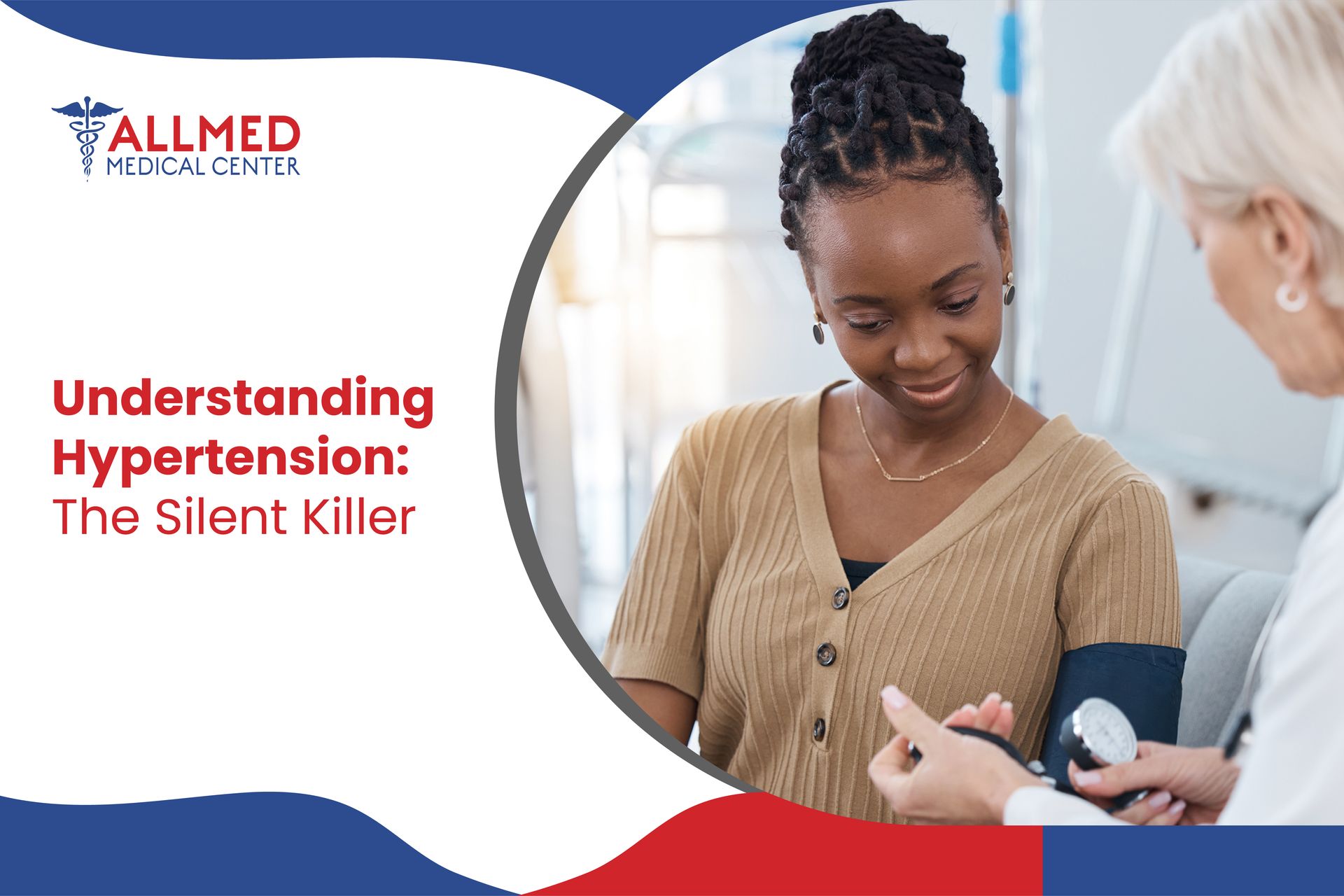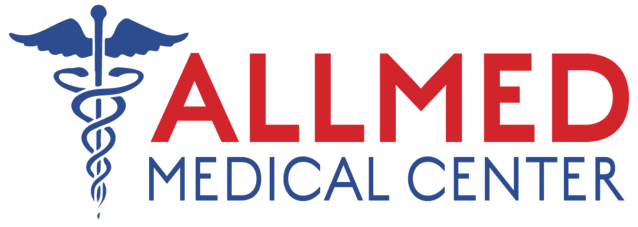Understanding Hypertension: The Silent Killer

The World Health Organization states that an estimated 1.28 billion adults aged 30-79 worldwide suffer from hypertension, commonly known as high blood pressure. This condition serves as a significant cause of premature death globally. Surprisingly, around 46% of adults with hypertension remain unaware of their condition.
But why is hypertension called the silent killer? It earns this reputation primarily due to the absence of signs or symptoms. Despite its covert nature, the alarming statistics emphasize the need to pay attention to hypertension. This article will discuss high blood pressure symptoms and the importance of regularly monitoring your blood pressure. These steps are crucial in identifying and proactively addressing this silent killer. So, let's delve into this critical discussion.
What is Hypertension?
Hypertension occurs when blood vessels experience elevated pressure, resulting in complications such as stroke, heart disease, or kidney failure. Controlling the silent killer disease is crucial to prevent severe consequences and maintain overall well-being. It's essential to understand what constitutes normal blood pressure, which typically falls below 120/80 mm Hg.
On the other hand, pre-hypertension refers to blood pressure levels higher than average but not yet in the hypertensive range. Awareness of pre-hypertension is essential as it is an early warning sign of potential hypertension development. Understanding what is normal blood pressure is also vital in identifying deviations from healthy levels.
What Are the Causes of Hypertension?
Learning the following causes of hypertension can empower you to make positive lifestyle changes and take proactive steps toward managing your blood pressure levels:
- Unhealthy Diet: Consuming a diet high in saturated fats, sodium, and cholesterol increases the risk of developing hypertension.
- Lack of Physical Activity: Leading an inactive lifestyle and not regularly exercising can contribute to hypertension.
- Smoking: Tobacco smoke has harmful chemicals that can damage blood vessels and increase blood pressure.
- Chronic Stress: Prolonged stress can lead to elevated blood pressure levels.
- Obesity or Excess Weight: Being overweight or obese strains the heart and blood vessels, increasing the risk of hypertension.
- Family History: A family history of hypertension can predispose you to develop the condition. It's essential to be aware of your family's medical history and inform your healthcare provider.
- Age: As you age, the risk of developing hypertension increases. Regular blood pressure monitoring and a healthy lifestyle are essential, especially for older individuals.
- Underlying Medical Conditions: Certain conditions like diabetes and sleep apnea can cause high blood pressure.
- Medications: Certain drugs, such as nonsteroidal anti-inflammatory drugs (NSAIDs), oral contraceptives, and some antidepressants, can raise blood pressure levels. It's important to discuss potential medication side effects with your healthcare provider.
High Blood Pressure Symptoms
One of the most concerning aspects of high blood pressure is it is often asymptomatic in nature. However, specific symptoms can indicate the presence of this hypertension silent killer. Be aware of the following signs:
- Seizures
- Chest pain
- Severe headaches
- Difficulty breathing
- Irregular heartbeat
- Fatigue or confusion
- Pounding sensation in the chest, neck, or ears
It's essential to be mindful of these symptoms and seek medical attention if you experience them. Regularly monitoring your blood pressure and discussing it with your healthcare provider is crucial for early detection and effective management of hypertension. Remember, being proactive about your health is critical in preventing potential complications of high blood pressure.
Risks of Hypertension
Minimizing the risks of hypertension is crucial to minimize the potential risks and complications linked with this condition. Neglecting proper management can increase the likelihood of complications, such as stroke and sexual dysfunction. Other conditions that can arise due to hypertension are as follows:
A. Heart Disease
High blood pressure places a significant strain on your heart and blood vessels. It forces your heart to work harder, increasing the risks of heart disease. Adding extra pressure to your heart can cause it to swell, resulting in narrowed or damaged blood vessels that can result in a stroke or heart attack.
B. Kidney Disease
Another severe consequence of hypertension is kidney disease. Eventually, it can damage your kidneys' blood vessels, reducing blood flow and impairing their ability to filter waste. It can cause harmful toxins to accumulate in your body, negatively impacting your health.
C. Vision Loss
Hypertension can also affect your vision. The tiny blood vessels in your eyes depend on proper blood flow for optimal function. High blood conditions can damage blood vessels, which can cause vision impairment or blindness. Regular eye check-ups are advisable for individuals with high blood pressure.
It is essential to understand that taking preventive measures to manage your blood pressure levels can significantly reduce the risk of these severe health complications. While managing hypertension seems challenging, remember that every effort can make a positive difference in controlling your numbers, no matter how small.
Managing Hypertension
Managing hypertension effectively is vital to adopt a holistic approach. Here are some critical steps to help achieve and maintain normal blood pressure levels:
1. Maintain a Healthy Lifestyle
Make healthy choices by selecting fruits, vegetables, whole grains, and lean proteins. Limit your intake of sodium, saturated fats, and added sugars. The American Heart Association recommends engaging in aerobic exercises like swimming, walking, or cycling for 30-60 minutes three to four times a week.
2. Monitor Your Blood Pressure
Regularly monitoring your blood pressure is essential. This allows you to track changes and detect potential issues early on.
3. Take Medications as Prescribed
If your healthcare provider prescribes medications to manage your blood pressure, follow the instructions precisely. Adhere to the prescribed dosage and schedule, and consult your doctor before skipping any doses.
4. Manage Stress
Find healthy ways to cope with stress, which can contribute to elevated blood pressure. Practice relaxation techniques like deep meditation, breathing exercises, or engaging in activities that make you happy. Establish a supportive network of family and friends.
5. Limit Alcohol and Quit Smoking
Restrict your alcohol intake to moderate levels, and if you smoke, seek support to quit. These lifestyle changes can positively impact your blood pressure and overall health.
Remember, managing hypertension requires ongoing commitment and active participation. You can effectively control your blood pressure and improve your well-being by incorporating these steps into your daily routine. Stay informed, consult your
healthcare provider regularly, and take charge of your health. You've got this!
Frequently Asked Questions (FAQ) About Hypertension
What Are Systolic and Diastolic Blood Pressure?
Answer: Understanding systolic and diastolic blood pressure is essential for managing your health. When measuring blood pressure, two numbers come into play.
The first number,
systolic blood pressure, indicates the pressure in your arteries when your heart beats.
The second number,
diastolic blood pressure, indicates the pressure in your arteries when your heart rests between beats.
For example, if your measurement shows 120 systolic and 80 diastolic, you can say "120 over 80" or write it as "120/80 mmHg." These numbers provide essential information about your cardiovascular health and help your healthcare provider assess your blood pressure levels.
Can you cure high blood pressure?
Answer: No, you cannot cure high blood pressure. However, you can effectively manage it by making lifestyle changes and, if necessary, taking medication.
Do blood pressure medications make me feel sick?
Answer: Like any medication, high blood pressure medications can occasionally cause side effects. You could experience common issues such as headaches, dizziness, or an upset stomach. These side effects can be bothersome and affect your daily well-being. However, they often diminish after the first few weeks of starting the medication.
If I have hypertension, should I consult my doctor if I plan on getting pregnant?
Answer: Yes, if you have hypertension and are considering getting pregnant, discussing it with your doctor is essential. Talking to your doctor will help you take the necessary measures to lower or manage your high blood pressure before and throughout your pregnancy. Pregnant women should not use certain blood pressure medications, like angiotensin receptor blockers and ACE inhibitors.
Take Control of Your Health: Trust the Experts for Hypertension Care
Due to its lack of apparent symptoms, we delved into the dangerous nature of hypertension, known as the silent killer. The article emphasizes the importance of managing hypertension to prevent severe complications such as stroke, heart disease, and kidney failure, highlighting the need for regular check-ups and effective treatment.
Take control of your health and schedule a consultation at our clinic to check your blood pressure. Early detection and proper management of hypertension can save lives. When you search for "hypertension treatment near me" or "high blood specialists," you will find AllMed Medical Center, the leading destination.
Schedule a consultation immediately by dialing 1-833-255-6332 or
clicking the link provided. We also accept walk-ins. With this
link, you can choose the location that you prefer.
AllMed Medical CentersServing
Greater Sacramento
Allmed Medical Center | All Rights Reserved.









